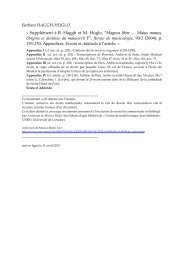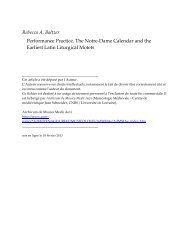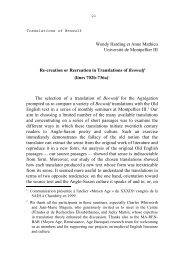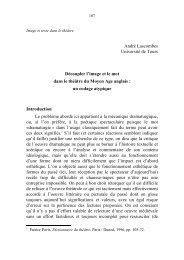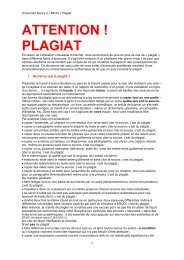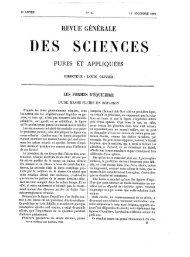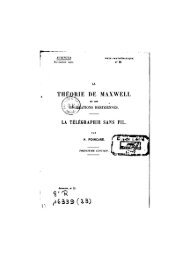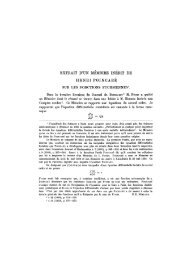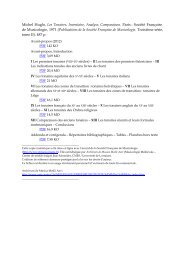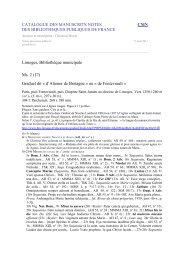Create successful ePaper yourself
Turn your PDF publications into a flip-book with our unique Google optimized e-Paper software.
106_(12U<br />
Stephen Morrison<br />
These references to the doughty exploits of West-Saxon and<br />
Northumbrian warriors (all with their backs to the wall, one notices)<br />
against formidable enemies appear not to have aroused much interest,<br />
and there is no obvious reason why their veracity should be called into<br />
question. Both Asser and the chronicle attributed to Florence of<br />
Worcester confirm what the English texts say of Ælfred and his<br />
armies, although since both Latin texts depend on a (now lost) version<br />
of the Anglo-Saxon Chronicle, their value as independent witnesses<br />
may reasonably be questioned. 9 However, the details surrounding<br />
Cynewulf's amorous escapade in the earlier annal for 755 have<br />
attracted the attention of one critic, Tom Shippey, who argues (I think<br />
convincingly) that "at one point" in the passage the narrator "surely<br />
cannot be telling the truth," and that point is when the king recognises<br />
his adversary, manfully defending himself oð he on þone æþeling<br />
(Sigebryht) locude, and then rushing out to attack. The really<br />
suspicious part of this account is, according to Shippey, the implied<br />
statement about Cynewulf's emotions: enraged by the sight of his<br />
adversary, he throws safety to the wind and fights in the doorway,<br />
unheanlice — manfully — we are told. 10 The problem with the<br />
Chronicle story is that such an assessment could not have been<br />
transmitted to any audience with an appetite for stirring heroic tales<br />
since, as the text makes very clear, all of the potential witnesses (or<br />
storytellers) were dead. Who, therefore, provided the story-teller, or<br />
the chronicler, with such details for his stirring tale? The story (or this<br />
9 . Compare William H. Stevenson (ed.), Asser's Life of King Alfred, Oxford:<br />
Clarendon Press, 1904, ch. 42, and Florence of Worcester "[...] he [Alfred]<br />
with a small and very unequal force fought fiercely against the whole army of<br />
the Pagans at a hill called Wilton [...]", taken from the translation by Joseph<br />
Stephenson, Florence of Worcester, A History of the Kings of England, repr.<br />
Lampeter: Llanerch Enterprises, n.d., p. 57.<br />
10 . Tom A. Shippey, "Boar and Badger: an Old English Heroic Antithesis?" in:<br />
Marie Collins, Jocelyn Price and Andrew Hamer (eds), Sources and<br />
Relations: Studies in Honour of J.E. Cross, Leeds Studies in English, ns 16<br />
(1985), 220-39.



